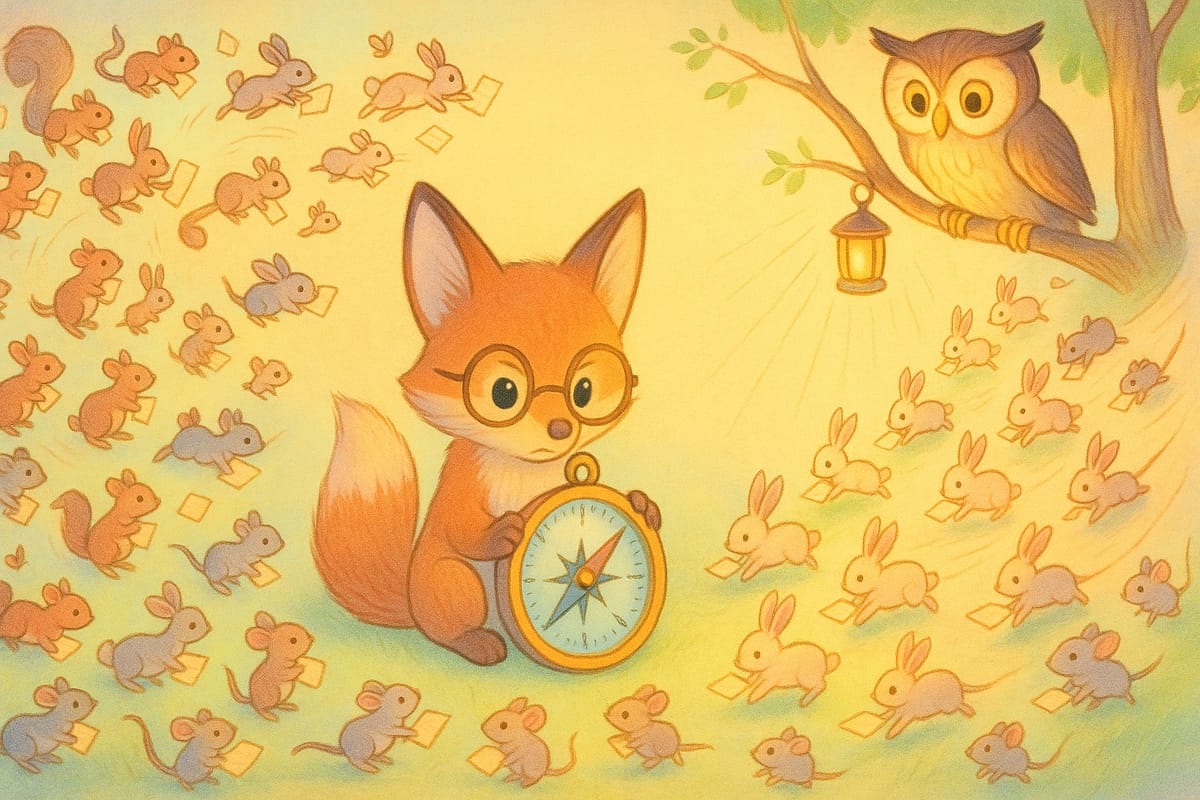Lab notes #074 Focused in a direction

It's been almost three months since the last lab note, and I lament that I didn't document the process and the shifts that were happening with my work. But then again, I was busy writing code and talking to potential users.
Back at #073, I was playing with an LLM chat app that gave you product recommendations. I found myself doing it more lately with GPT and figured that more and more people would do it too. ChatGPT didn't give a great experience with it, so I figured it was worth a shot. However, two things stopped me in my tracks.
First, it's an uphill battle fighting with product providers to give you accurate product information. So most of the time, you're going to be doing an arms race with crawlers. That didn't seem particularly appealing to me.
Second, I had an experience that was more in line with the stuff that I'd been doing in these lab notes: I had my agent read my notes.
I had been using Roam Research for years now, not feeling the need to switch, like productivity junkies. But one day, I realized that LLMs are pretty good now, but that when they fall on their face in performance, it's usually because they simply don't have the right context. Hence, if I just export my Roam Research notes into Obsidian, I could misuse Claude Code to read my notes for me.
The result was electrifying. It felt like talking to a friend that was into all the same things I was into, and I never had to explain any context. In conjunction, I noticed there were other people discovering same thing: that you can "misuse" Claude Code for non-coding tasks. In mid-July, came the final push. I noticed that Every.to, a company whose blog I follow, had a podcast in which they talked about how they operated as an AI company. They basically document their ways of working and use agents to help them automate or partially automate it. That brought a focus and clarity to the overall picture of all the pieces that I'd been collecting and researching over the years.
I started to try working this way. I took Hamel and Shreya's system eval course, and misused Claude to help me do system evals as a hacked-together test. I wrote about the process, and it was a glimpse into a future way of working.

Encouraged, I tried to find a way to leverage LLMs in engineering. It's not quite as easy, as vibe coding is production is nothing like vibe coding for ephemeral apps. They actually take quite a bit of scaffolding to make it work.

While this is better than what I was doing before, I'm still trying to find something that meets my standards for code. I'd like to accelerate with LLMs like others too, but while I'm in control, I have a bar that the LLM designs just can't seem to reach at the moment. I'm still working out the kinks.
This time it feels different. It feels like I'm doing customer development right, and it feels like I have an open secret that I want to find others with that same open secret. So for now, I'm just doing customer development and building to something usable and launch-able.
I'll talk more about it all later, but in the meantime, someone had asked me for podcast recommendations for biking or swimming, so here's my one-time list.
Sarah Paine Lectures on Dwarkesh Podcast
Expert on China and Russia gives an engrossing walk-through on recent world history. Introduces concepts like continental vs maritime powers, death ground, and mental tools like argument/counterargument/rebuttal. Dwarkesh jokes that on a per minute basis, he’s really the host of the Sarah Paine podcast and occasionally does some AI interviews on the side. I highly recommend her lecture series for its clarity, perspective, and counter-arguments.
Computer Enhance
Casey Muratori finished up Handmade Hero, and is now doing a for-pay ($9/month) series on how to write performance aware code. It starts with a walkthrough of how CPUs are put together, how to read x86 assembly, memory mapping, RAT, execution ports, SIMD, etc. I listen to this when I do my walks in the early morning. I don’t know of anywhere else on the internet this is being taught.
Fall of Civilizations
For a longer perspective on history, this covers the rise and fall of various civilizations around the world. People meme about the Roman Empire, but the topic is more expansive and interesting than just the Roman Empire. The usual question of how to retain the founder ethos is an apparent through-line of all these stories. Also highly recommend.
Dalton + Michael
The comedy duo is back. Besides tackling broader topics related to startups, I like the vibe—it makes me want to be in the same room as the two of them. Where the fun happens over beers, but there’s no beer. They have a previous series with YC, if you happen to miss them somehow.
This American Life
The back catalog will keep you preoccupied for months. Great pacing and storytelling. I particularly recommend Act 2 of this eps where a little girl had recurring dreams of being a superhero. She made a list of all the skills she would need to master: Martial arts, evasive driving and bomb diffusion. She actually checked off most things on the list...
Game Maker’s Toolkit
I’d always been fascinated by games, but recently, I’ve been interested in how games are designed, and how do you find the fun? Product design is much harder here, and even with this analysis, it’s an analysis of a game after it’s done, rather than the process of making one. Still, I think about how much of this is applicable to application design without being a gross over-application, like in the “gamification” trend of 2010.
Howtown
How do we know what we know? For example, how do we know the distance from the earth to the sun? There’s something called the Cosmic Distance Ladder (part 2), where we can calculate ever increasing larger distances, from the size of the earth to the most distant galaxies. While that question is on 3blue1brown, Howtown takes up that mantle on other questions, such as how do we know what Quetzalcoatlus looked like? How do we know that earth’s land masses were in a different configuration in the far past?





